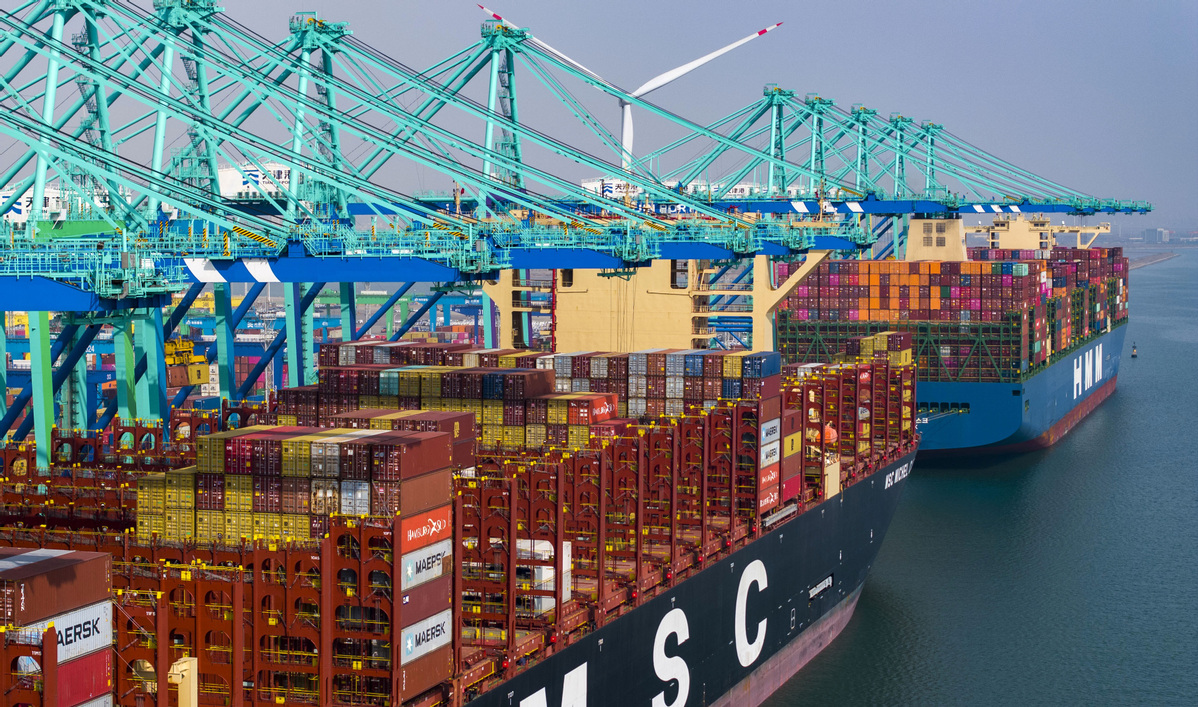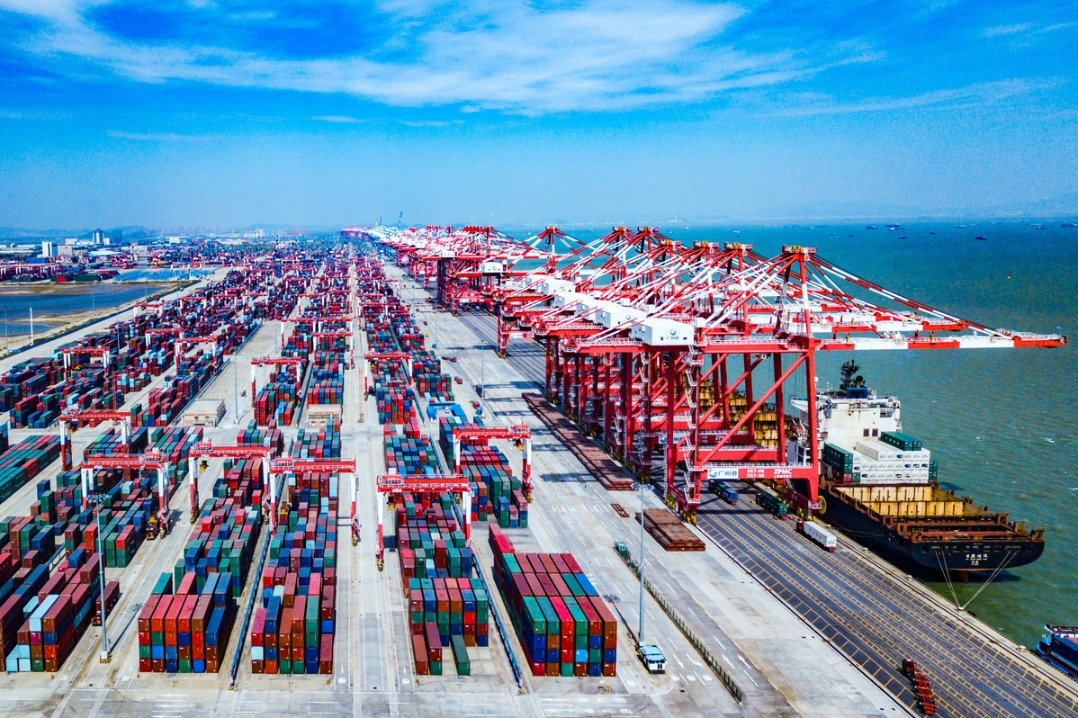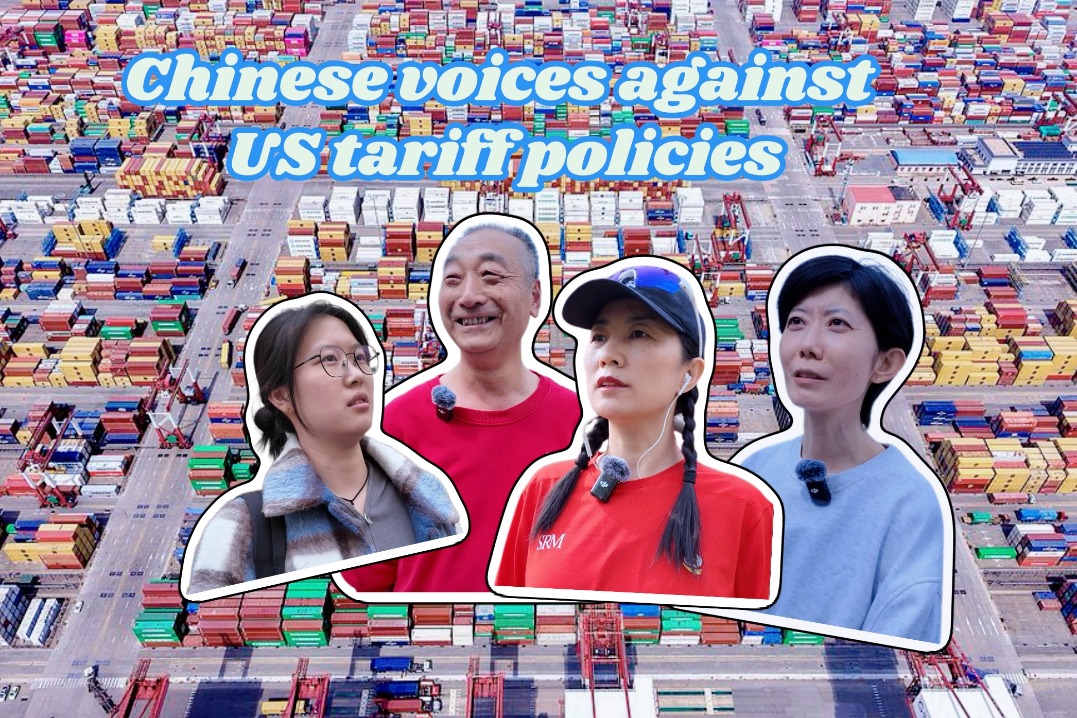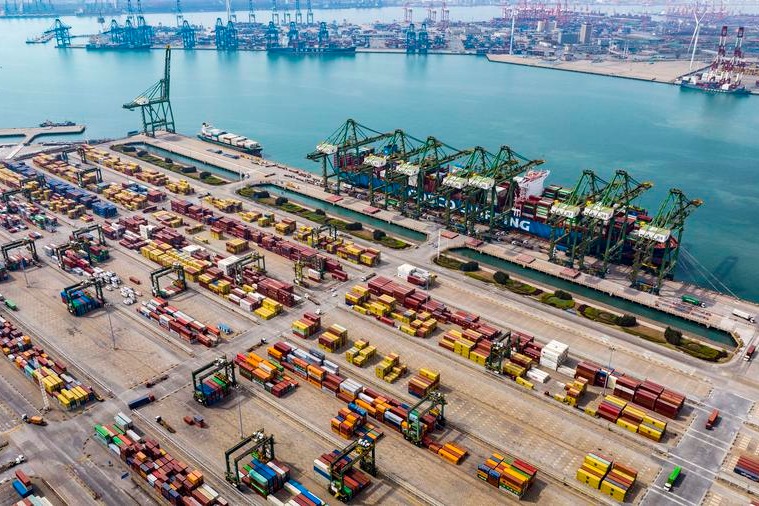China will never submit to tariff despotism: China Daily editorial


The high tariffs the United States administration has imposed on Chinese goods are coercive in nature, run counter to market economy principles, and will have serious repercussions for China-US economic and trade relations. This is the message contained in a white paper released on Wednesday by the State Council Information Office.
In fact the US is going to the extreme to try to bring China to its knees in the trade war it has initiated. The White House said on Tuesday that unless Beijing withdraws the 34 percent tariffs it imposed on US products last week in response to those of the same percentage levied on Chinese imports by the US — which came on top of the 20 percent tariffs the US administration had already imposed earlier this year — it imposed further 50 percent duties on imports from China on Wednesday, bringing the total punitive tariff hike on Chinese goods to 104 percent. In response, Beijing announced it will increase the additional tariff rate on all US imports from 34 percent to 84 percent, starting Thursday, and it has put 18 US companies on trade restriction lists, along with other countermeasures.
But caving in to the US pressure is out of the question for Beijing. It is a core tenet of the country's external work, based on the lessons learned from history, that it should never be deterred by intimidation, swayed by fallacies, or cowed by pressure. Going forward, it knows it will face an even more severe international situation and more complex external environment, and that only by having the courage and ability to overcome difficulties and obstacles can it continue to forge ahead. The country will therefore continue to display its indomitable spirit and make tenacious efforts to open up new horizons for its modernization journey. In the same vein, China also knows that on major issues of?right and wrong, it is imperative to uphold principles.?
The US administration's reliance on coercion through tariffs is an ill-conceived and misguided power play that only leads to a dead-end. History shows that there are no true winners in trade or tariff wars, because by nature they are ultimately harmful to all. The US' abusive use of tariffs not only infringes on the legitimate rights and interests of China but also those of other countries.
Its trade despotism has violated the established rules of the World Trade Organization. Such behavior undermines the rules-based multilateral trading system and disrupts the stability of the global economic order.
This unilateral, protectionist and coercive approach has quite rightly been met with widespread opposition from the international community. China, rather than appeasement, has taken a clear stand on the side of fairness and justice, and the progressive side of history. It is not that China does not understand what the unprecedentedly high tariffs mean for its exports and the economy in general. Profits of export-oriented industries will take a blow and the resulting decline in manufacturing investment and consumer sentiment will dampen economic growth. But it also knows that kowtowing to the US' tariff bullying will gain it nothing, given that it is no secret the US is now intent on cutting China out of its consumer market and reshaping the global supply chains to serve its own narrow interests.
But even a sharp decline in exports to the US will not fatally damage China's overall economy. Thanks to China's efforts at diversifying markets in recent years, the US accounted for 14.7 percent of the country's total exports last year, down from 19.2 percent in 2018. Which means China has the capability to prevail in this "trade war of attrition". On the other hand, the damage the tariff war is inflicting on the US economy is becoming severer with each passing day.
It is natural that China and the US, in different stages of development, have differences and frictions in trade and economic cooperation. Yet tariffs and protectionism are the wrong means to deal with the problems that have emerged. The white paper calls for dialogue and consultation to keep the two countries' mutually beneficial and win-win economic and trade cooperation on track.
But despite assertions from the White House about it being open to dialogue with Beijing, the actions of the US administration do not currently reflect a genuine commitment to engaging in constructive discussions with China. If the US administration truly desires meaningful dialogue with Beijing, it must demonstrate a willingness to negotiate on the basis of equality and mutual respect. Resorting to demeaning and derogatory language, even if it is just intended for domestic consumption by perpetuating a skewed narrative about China and its people, does not serve as an invitation to dialogue. Nor are intimidation, threats, and blackmail conducive to productive engagement with China. Beijing is not seeking conflict, but it will stand resolute in the face of adversity. As always, it is prepared to take all necessary measures to defend the country's legitimate development rights and interests.
It is never too late for the US to mend its way and work with China to find a feasible solution to bilateral trade and economic disputes. But in the event that the US administration remains steadfast in pursuing a tariff and trade war to advance its zero-sum objectives, China stands prepared to resist its modern gunboat diplomacy.

































